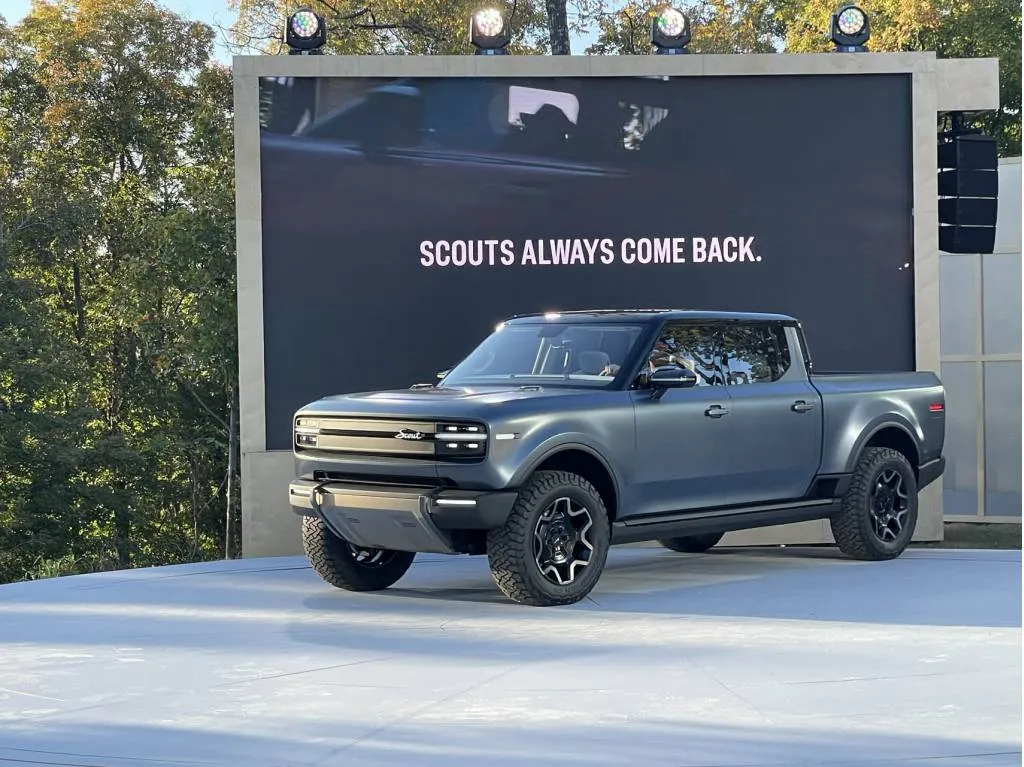- VW bypassed conventional dealerships for selling upcoming Scout electric trucks
- Dealer interests in California say this is in violation of franchise laws
- Existing automakers sell vehicles via franchise or direct model, but not both
California has the most EV-friendly policies of any state, but that warm-and-welcoming attitude isn’t shared by the state’s franchised dealerships.
A group of those dealerships has threatened legal actions against the Volkswagen Group’s new Scout Motors EV brand, if it doesn’t stop taking reservations for its electric Terra pickup truck and Traveler SUV due in 2027.
Scout has said that it will rely on a direct-sales model—similar to that of other all-electric brands like Tesla, Rivian, and Lucid.
In a December 20 letter to Scout Motors general counsel Neil Sitron and VW Group of America general counsel Antony Klapper, first spotted by Automotive News, the California New Car Dealers Association said the direct-sales plan “wrongfully cuts new and existing VW dealers out of an opportunity” and allegedly violates California’s franchise laws.

Scout Traveler concept
“California law states that manufacturers may not compete with their own franchisees by using affiliates to directly sell or service vehicles, which is precisely what VW and Scout intend to do,” the letter said.
Dealers have been grumbling about direct sales since Tesla rolled out its sales infrastructure over a decade ago. At the time Tesla indicated that it didn’t feel its electric vehicles would get a fair chance being sold at franchised dealerships alongside gasoline vehicles. Dealers responded with lobbying campaigns at the state level to protect franchise laws, something Rivian CEO RJ Scaringe has called “as close as you can get to corruption.”
But while automakers like Tesla, Rivian, and Lucid all rely partly on company-owned showrooms, they’ve also never used franchised dealerships. Scout, on the other hand, is still part of the VW Group, so the argument seems to be that VW can have dealerships or it can have direct sales, but it can’t have both—even if the different sales models were siloed by brand.

Scout Terra concept
Volvo found the right balance with Polestar, which has been allowed by the states as a direct-sales model, but with some level of customer service—and the service-and-repair operation itself, in many cases—connected to Volvo dealerships.
An approach like that might have helped to cool tempers here. U.S. dealerships had been asking VW for pickups for years, and VW didn’t keep dealerships in the loop at all about the Scout brand. It came as a complete surprise.
Meanwhile, VW recently took a $5.8 billion stake in Rivian, which happens to already make trucks that are very close to the same format as Scout previewed in concept form earlier this fall, still more than two years away from production. And, in Rivian’s case, its network of company-owned showrooms are already in place.

